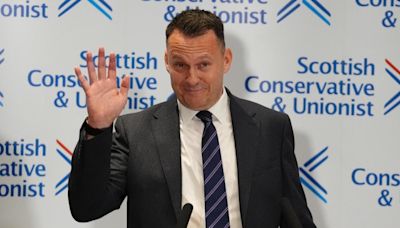Search results
People also ask
Does public trust in charities have a plateau?
Is public trust in charities recovering & stabilising?
How does the Charity Commission influence public trust in charities?
How can we build public trust?
Aug 16, 2024 · Research objectives: To understand public trust in charities, what affects public trust in charities, and awareness and knowledge of the Charity Commission.
- Public trust in charities and the role and experience of ...
public trust in charities is nuanced and complex, driven by...
- Public trust in charities and the role and experience of ...
- Summary
- Public trust in charities
- The role of trustees
For over ten years, the Charity Commission has conducted a comprehensive research programme. During that time we have generated a rich seam of insight into public perception of the charity sector, and on how charity trustees undertake their vital roles and responsibilities so that their impact is felt by the people and causes who need their help most.
Increasing public trust and promoting compliance amongst charity trustees are not just in our statutory objectives, but drive our reason for being. We have a commitment to supporting charities, through guidance, so that trustees can manage their charities well and in line with the law. We play an equally central function in providing the general public with relevant, reliable information about individual charities and how they run.
We’ve been evaluating trust in charities for over a decade to understand what drives it and how charities and their regulator can foster it.
This shows that:
•public trust in charities is nuanced and complex, driven by good regulation but also the actions and behaviours of individual charities
•negative actions by one charity can have an affect on perception of charities generally
Views of trustees are largely aligned with the public
Our research shows that trustees and the public do not have inherently different world views. They have almost identical views on whether charities should have the same or higher standards than other organisations, and whether charities should campaign for changes that support their aims. They differ slightly on some specifics such as what is acceptable pay for senior charity staff, and as with the public there are some differences across different regions of the country and the type of charity they run. Yet none of their views are fundamentally opposed.
Trustees’ understanding of their responsibilities is good, but there are key gaps
Our research shows where trustees have high confidence about their role: 98% of trustees said they were very, or fairly, confident about governing their charity they are similarly confident about protecting their charity and its beneficiaries from wrongdoing and harm over 90% understand that they are responsible for ensuring that all the charity’s activities help to fulfil its purpose This confidence is welcomed, but when we look at trustees’ understanding of their role, there are some important gaps, suggesting some of that confidence may be misplaced.
There are some areas where a significant minority of trustees need to refresh their understanding
Around one in five have not fully appreciated that as the key decision-making body, responsible for governing and directing the charity, they are collectively responsible for critical functions and cannot wholly delegate that overall responsibility. In particular there is less comfort on financial oversight, including for the charity’s annual accounts. Further, only around 75% of trustees could correctly identify what is, and is not, a conflict of interest (a situation where personal interests may conflict with the charity’s best interests) when presented with different scenarios. This is an area where charities can get things very wrong. Running a charity is not easy and we are very pleased that trustees reporting a good understanding are still by far and away in the majority. Given the fundamental importance of these key legal responsibilities though, there is room for improvement. With our new 5-minute guides, and associated awareness-raising campaigns, we work with the sector to strengthen trustees’ understanding of their responsibilities, particularly for financial oversight and reporting, decision making, and dealing with conflicts of interest.
Jul 14, 2023 · The public tend to trust small, local charities run by volunteers more than large, national charities run by paid professionals because they are more confident that money reaches the intended...
SECTION 1. What is the public opinion landscape for charities amid rising living costs? We are in an era of charity trust in which the value of charity is still recognised but where doubts...
Jul 14, 2023 · Improving the Register of Charities. Steven Henry, 24 May 2021 - Public Trust, register, Research. The Register of Charities plays a vital role in helping people make informed decisions about...
Jul 14, 2023 · Trust continues to be closely linked to the public seeing a high proportion of funds used for charitable activity, that charities are making the difference that they promise to make, and that the...
Who are the public? Explaining the socio-demographic map. Understanding public opinion means recognising we are all products of our backgrounds and circumstances, and in many cases differences...
See Anyone's Net Worth & Public Assets. Type Any Name & Search Now!




